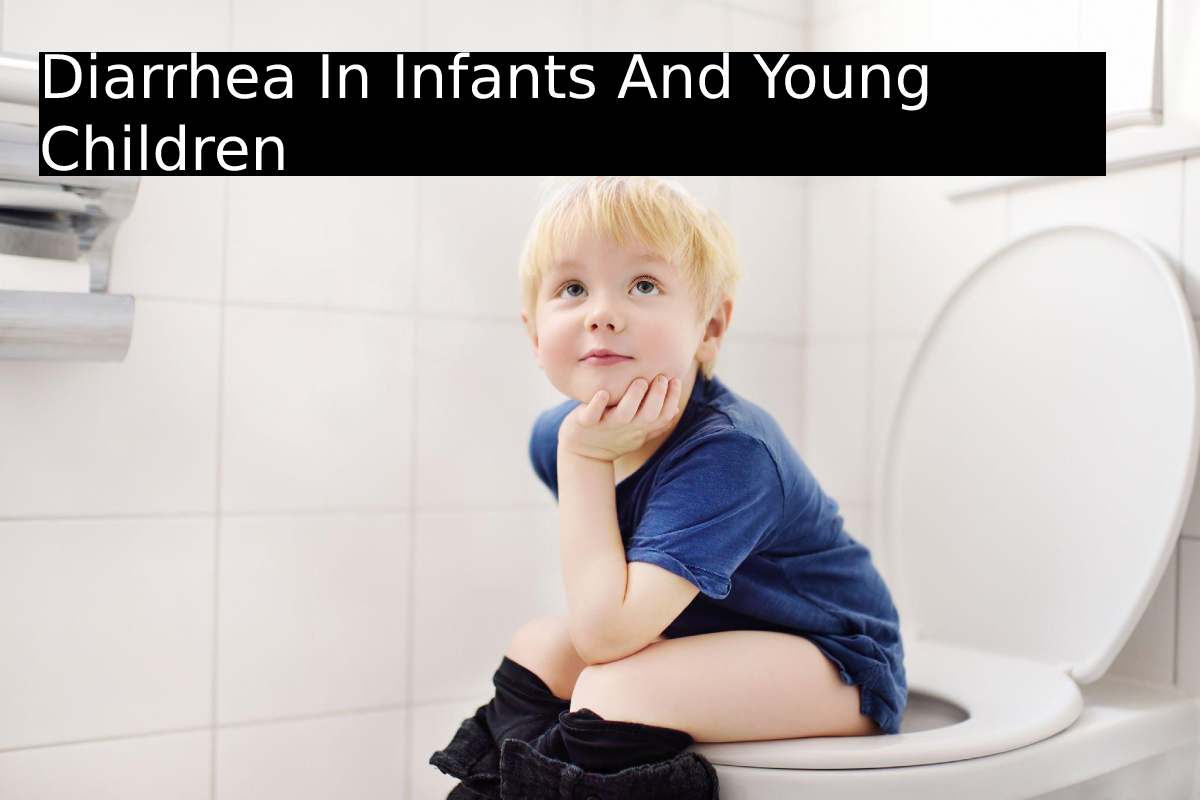Diarrhea In Infants And Young Children -Diarrhea is very common in children, and a distinction is made between acute and chronic diarrhoea. The child loses a lot of fluids, which can cause circulatory problems.
Causes Of Acute Diarrhea
An acute gastrointestinal infection in children very often begins with abdominal pain, loss of appetite, vomiting, sometimes also fever and light diarrhea. Accompanying symptoms such as headaches, nausea or dizziness are not uncommon. Possible triggers are:
Rotavirus:
Intestinal infections caused by rotavirus are very common up to 5 years of age. This extremely robust virus is often transmitted in nurseries, children’s hospitals and kindergartens. It is noticeable through sudden watery diarrhea, often also through vomiting. The illness lasts up to 6 days, serious illnesses are rare in this country, there is a vaccine.
Noro, entero and adenoviruses: can also cause acute diarrhea.
Bacteria:
About 20% of childhood diarrheal illnesses are caused by bacteria such as salmonella or coliform bacteria.
allergies
poisoning
antibiotics
Emphasize
Inflammatory Bowel Disease:
This includes Crohn’s disease. Although very rare, it can also be a possible reason for diarrhea in children.
In severe cases, laboratory values (blood and urine) can be used to test exactly which pathogens are involved, and intestinal ultrasound can be used to localize inflammation. The doctor also clarifies changes in eating habits.
When Does Diarrhea Become Dangerous In Infants And Young Children?
For babies, you should see a doctor right away if the child has more than 5 loose stools a day; for young children, it is more than 3 loose stools a day. About 90% of diarrhea is acute with a maximum duration of 2 weeks. Common accompanying symptoms are fever, nausea and vomiting, abdominal pain, and loss of appetite. These symptoms occur due to dehydration and electrolyte depletion, so it is very important for children to stay hydrated to prevent dehydration.
Diarrhea THERAPY
Acute diarrhea whether in infants or young children, is first treated with a day of tea: give the child only a fine black tea or blackberry leaf tea or tea made from dried cranberries.
Infants and offspring below 5 years of age with mild to moderate dehydration should be given special anti-dehydration products (available at the pharmacy as a ready-to-use powder for electrolyte mixes) in addition to more fluids (teas, water… ). Highly sweetened teas and clear, salty soups help children from the age of 5 to replenish their missing fluid stores. Cola drinks are completely unsuitable for children.
For symptomatic therapy, e.g. B. probiotics or for children from 2 years also activated charcoal tablets. If bacteria or viruses are active in the gastrointestinal tract, metabolic toxins are produced. Activated charcoal binds to these toxins that are formed during viral or bacterial activity. Children can safely take the recommended amount of activated charcoal, preferably dissolved in a glass of water. The use of antibiotics, on the extra hand, only makes sense in exceptional cases.
Diarrhea In Babies And Young Children: What Else You Can Do
Breastfeeding, including partial breastfeeding, strengthens the immune system and greatly protects against acute diarrhoea. Viruses mainly enter the mouth through the hands and finally the intestine. Therefore, frequent hand washing is an important preventive measure: thorough cleaning with soap several times a day is important.
The Following Teas Help With Acute Diarrhea:
Blackberry leaves: Pour ½ liter of boiling water over 2 tablespoons of blackberry leaves, let stand 10 minutes, strain
Blueberries: Put 5 teaspoons of dried blueberries in ½ liter of cold water, bring to a boil, boil for about 10 minutes, then strain, give 1 cup of tea 3 times a day;
Older children chew 3 to 5 dried cranberries before each meal.
Chamomile tea – sweetened chamomile tea also helps with intestinal problems

